Researchers have long studied the impact kindness can have on our own happiness--which seems like it would improve our ability to lead. Research explicitly proves that being kind to others makes us happier. And happy people at work are 12 percent more productive than unhappy people. Can kindness at work also elevate your leadership? Here are three ways in which simple kindness could bring you more success as a leader at work.
Read MoreEquality doesn't mean same, or equal. Equality doesn't guarantee me a starting position on YouTube. Equality means equality of access, the opportunity to do my best without being disqualified for irrelevant reasons. For leaders this means you don't have to treat everyone in an identical manner. But you have to be equally fair with everyone and treat them with dignity.
Read MoreIt is said that simplicity is the virtue of removing the extraneous to reveal the essence.
The beginning of August is National Simplify Your Life Week. Entrepreneurs and business professionals can use this period to streamline their work and home life. That's because simplicity is a test of whether you're clear about your priorities.
Our immediate environment is a reflection of our mindset - a neat and organized office reflects the discipline with which we approach our vocation. Clutter, on the other hand, betrays our sloppiness. Today I’m sharing 3 suggestions on how to simplify.
Read MoreWe started the month of July sharing 3 obstacles to change: Negativity, Exclusion, and Confusion. Then followed up with how to turn Negativity into Positivity, and Exclusion into Inclusion. Today we are sharing why clarity is important for change and how to have clarity instead of confusion.
A lack of clarity makes us feel uncertain, so rather than risk making a mistake, the natural human response is to say 'NO'! Learn how to use clarity for change.
Read MoreTraditionally, many organizations think of the term inclusion as part of their diversity efforts. I want to share what Federick Miller and Judith Katz, Ed.D — who did a joint presentation at an Organizational Development Network Conference a few years back — consider inclusion to be. They see inclusion as an inclusive value system that needs to become part of the organizational culture.
As a leader you are responsible for helping people feel included, to feel part of the “we” that forms the organization. Today we’ll share Inclusion’s three main components:
Read MoreNegativity is one of the main roadblocks to personal and organizational change. Negativity can work as a virus “infecting” everybody. Today we are going to see how you can conquer negativity by encouraging and sustaining a positive culture that promotes positive attitudes and feelings. Organizations that encourage a culture of positivity, flourish. Here are a few strategies for creating and maintaining a positive work culture.
Read MoreIf you are trying to implement any kind of change, for yourself or for your organization, and are having a hard time doing so, this post is especially for you.
As I go into different organizations a common complaint I hear is how much people resist change. Do you also think change would be a lot easier if there were no resistance to it?
Today we talk about how eliminating 3 obstacles can greatly improve the success of change.
Read MoreIndependence Day around the world usually involves grand ceremonies and epic celebrations — and rightfully so! Commemorating the birth of a nation is an occasion of joy. It also makes for the perfect opportunity to reflect upon our own reasons for celebrating. What are your reasons?
Read MoreJune is the month of effective communication, and July reminds us of the importance and price of freedom. Today I decided to mix the two and reflect on freedom of speech in organizations.
Read MoreJune is Effective Communications Month! Last week we shared the first three of 7 communication mistakes that derail effective communication. This week we will consider the last four: making assumptions, wrong environment, negative focus and contrary purposes.
Read MoreEffective business communication costs very little and the results can transform both you and your business. Communication and interpersonal skills are at the top of the list of what matters most today in leadership. Yet there are costly communication mistakes that are behind some of the worst problems leaders encounter. By learning to correct them, you will save time and money, your influence will increase, and you will have better relationships.
Today I'm going to share the first 3 and next week the next 4 mistakes.
Read MoreJune is Effective Communication Month! Since that is one of my most favorite topics, I will spend the month of June sharing important principles and practices that can encourage more effective communications in the workplace. We’re wired for dialogue and, under the right circumstances, getting engaged in a good conversation is among the most automatic and irresistible of human activities. How can you use this powerful tool more?
Read MoreWorkers represent half the world’s population and are the major contributors to economic and social development. Their health is determined not only by workplace hazards but also by social and individual factors and access to health services.
Why should you find ways to promote a healthy workplace? Dr. Maria Neira says it succinctly in a very practical way: “The wealth of business depends on the health of workers.” (Director, Department of Public Health and Environment, World Health Organization).
Read MoreWhen it comes to mental health, high-pressure roles and leadership traits, Dennis Miller has been there, done that. Here are four tips taken from his personal experience to help you and your colleagues manage the pressures of the C-Suite life
Read MoreMay is mental Health Awareness Month, observed since 1949. This seems like a great springboard to get people talking and thinking more about mental health and leadership. Therefore, for the rest of the month my blog posts will speak about this.
Because leadership is hard work that requires immense sacrifice, many times CEOs are treated like heroes to celebrate or gods to worship. This mode of thinking perpetuates the pressures put on CEOs to be superhuman, and conceal their vulnerabilities and challenges behind closed doors, with some times fatal consequences. But when the cameras aren’t rolling, the immense pressures of the job and the psychological extremes needed to get there start to reveal themselves.
Read More















